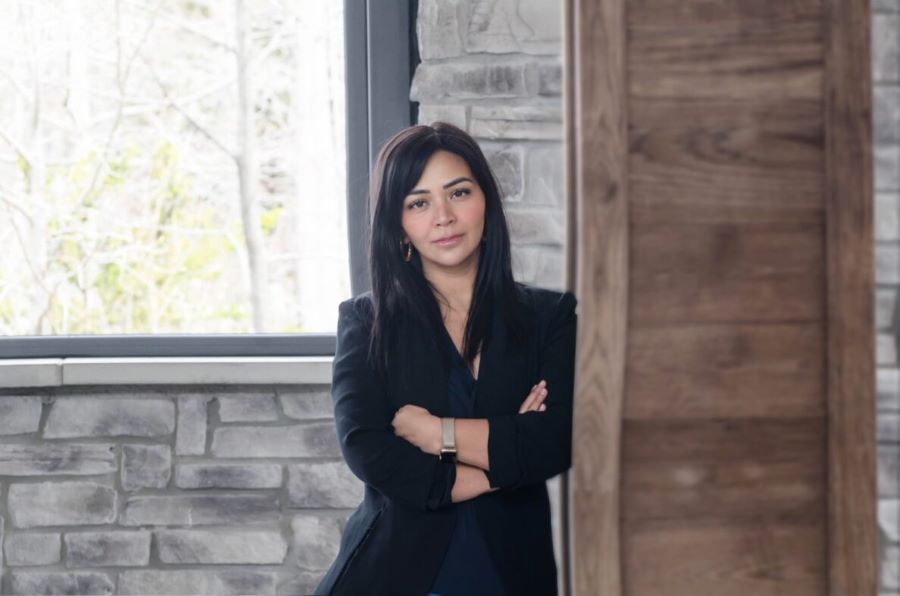Sharon Constançon, Owner and Founder of currency exchange advisors Valufin, speaks to ITM’s Chris Beck about how her company is unique within the marketplace.
The foreign exchange market is, according to the most recent figures, worth over £3 trillion per day in the UK alone. There are a wide variety of companies set up to aid in the transfer of money abroad, so it takes something a bit different to stand out above the herd.
South African born British citizen, Sharon Constançon, established Valufin as she wanted to be able to offer just that. Speaking to Sharon at her offices, she told me how the idea for a foreign exchange advice service came about: “The concept of the company goes back to 1988, when I created Valufin’s predecessor in South Africa. Having worked as the treasury manager of the Blue Circle Group and as a forex Chief Dealer at Société Générale I realised that it was almost like two arms of a funnel heading away from one another; there was no way that the client was getting what they needed from their bank and the bank was unable, for various reasons, to offer the perfect solution to their client.”
From this idea, Sharon established Constançon Currencies in 1988 which was listed on the Johannesburg Stock Exchange in 1998. Sharon left the company late the following year for governance and principles reasons and was hit by a ten-year non-compete clause, meaning she was not permitted to perform a consultancy or advisory role within currency exchange for a decade. She honoured that, and eventually formed Valufin in 2009. “It consists of two companies,” she explained, “one based in Cape Town, providing exactly what we used to and run by a previous employee, now shareholder, and one in the UK, wholly owned by Sharon, which offers a full international service as opposed to a regional, South African focus.”
Being UK-based has its benefits: “Being located in the UK, enables Valufin to offer currency advisory services to any client wherever they are located globally irrespective of jurisdiction, what with the UK being such a major developed financial centre and is also well positioned in terms of global time zones.”
So why did Sharon want to provide something above and beyond a regular transactional currency exchange service? “Transactional is in the moment and is not about adding business value to companies. Secondly, markets have changed during my ten-year hiatus, but they haven’t necessarily changed in favour of the customer. In today’s world, the regulator has turned the focus of the financial services sector towards customer outcomes. Therefore the mindset is needing to change in this sector like the rest of the financial services sector. This sub section of the market is like others, grappling to catch up with the regulator. Service is why I get up in the morning and drives the way I work for my customers. I believe in good business culture which drives an ethical view of providing value to individuals and SME’s who are not being well looked-after.”
The foreign exchange market which Sharon describes as “the largest, most liquid market in the world.” has always been a counterparty-to-counterparty (customer to bank) service rather than being an exchange traded commodity which leaves the range of services, rates and costs open to abuse if not controlled by the customer – who unfortunately is not in a position to know any better. Sharon notes that trade profits are achieved by, “making a quick buck at the expense of the customer.”
This is where Valufin steps in. Explaining how the company is set up, Sharon stated: “Valufin’s core business is 100% foreign exchange advice. We exist purely to look after and advise our customers on treasury management. We are basically a treasury manager to a large number of different customers instead of me being a treasury manager inside one large conglomerate. What we bring to the SME market is the same level of knowledge, systems and quality that a large FTSE100 company would be able to afford, but at a hugely discounted rate and scaled to be proportionate to the customer’s business needs. The added value is that Sharon has good business, Board and finance experience to complement the forex risk management.
“We are purely advisory – we don’t touch the money at any stage, and we are independent in the truest sense of the word. We stand on the customer’s side of the fence and look after their needs, instead of focusing on transactional profit margins as brokers and banks do. We are like an employee.”
“I do not know of any other company that is 100% advisory and 0% transactional,” Sharon stated with confidence, adding: “The reason I can say that with some comfort is that even the Financial Conduct Authority has stated that this is the first time they have come across this business model!” As the market sees it, the transactional side of the market is the more popular, “sexy” one, where there is no involvement in the detail, leaves the door ajar to carve out a new niche providing independent advice.
SMEs make up the main proportion of Valufin’s client base. “We will happily look after a large customer, but they would only approach us if they don’t have a treasury manager – a shortage of knowledge – or if they had poor internal systems. We are only useful, really, to a company that doesn’t have what we can offer – knowledge, systems and business nous to complement the foreign exchange activity. We focus on the business first and ensure the forex activity underpins the business and not the other way around”
Customers can stand to benefit substantially from Valufin’s services. Sharon and her team will be able to point out the risks, opportunities, processes and potential while always ensuring there is full information and knowledge to all. Our customers can expect to be able to achieve savings of between 2.5% and 5% of the forex values.
But it’s not only advice, systems and process management that Valufin can offer….
“In addition to currency advice, we offer currency reviews or a full currency audit. In this instance, we review a company’s foreign exchange activities such that finance, audit committee and the board gains assurances and understanding on forex risks, opportunities and processes and whether this is optimally managed. With respect, an accounting firm is unlikely to have the true skills to be able to comprehensively carry out such a review.”
Another Valufin USP!!”
We can do a review before working with a client or offer a full audit as an independent project. The audit is primarily of value to a larger organisation that needs to confirm that it’s doing everything properly and what needs addressing and how.”
I asked Sharon about the regulations and governance impacting flows of funds and the behaviour of the forex market, and whether this helped or hindered Valufin. She explained that regulations were dependent on the jurisdiction: “The forex market globally per se has little regulation and only derivative instruments are regulated in the UK not the vanilla spot and forward instruments. Countries with exchange controls like South Africa provide Valufin with a business opportunity to add value to customers negotiating this minefield. Their regulation is onerous on free movement of money, so a key service in South Africa relates to helping companies and individuals navigate the challenges to remitting money offshore legally and effectively at the right price. We help them with their Revenue Office (SARS) and Central Bank (SARB) clearance and application documents, mandates, declarations and transaction forms that need completing and the process steps that need to be followed.”







